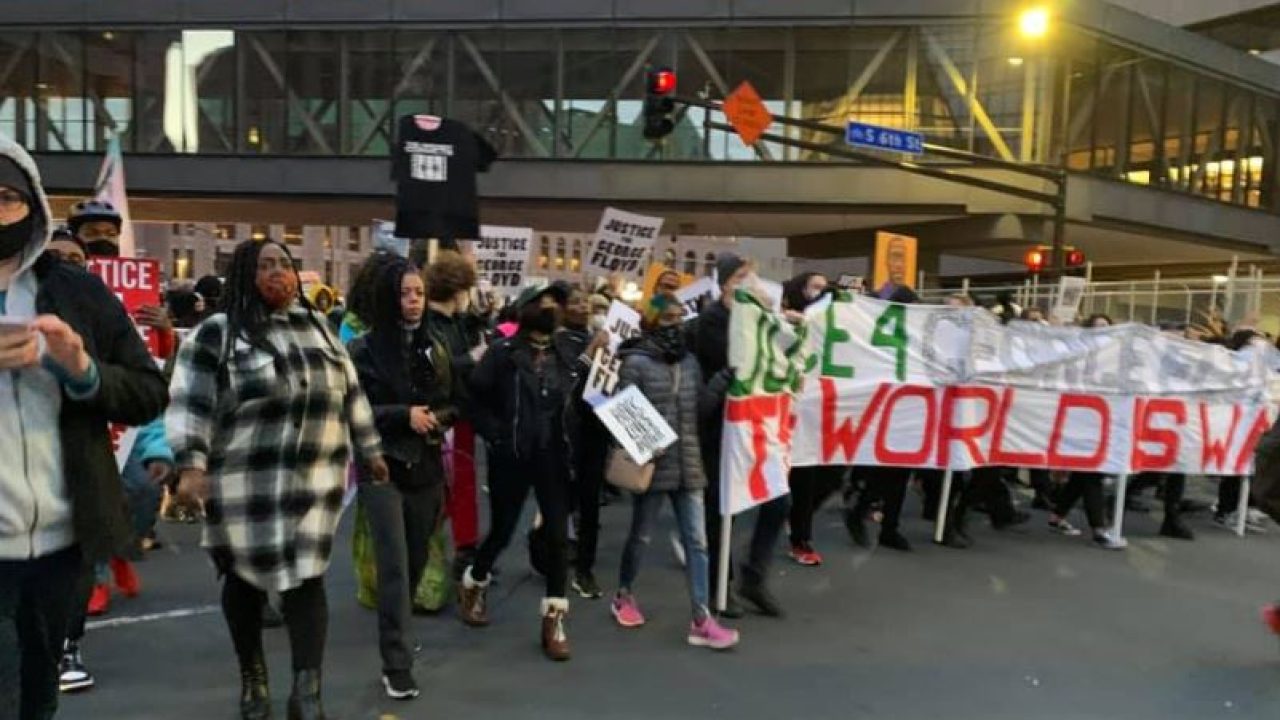Trauma Informed Care means automatically assuming that every person you encounter is dealing with some sort of trauma you know nothing about. It means being kind and empathetic. It means utilizing your skills and knowledge to deal with an elevated client in the gentlest ways to de-escalate.
Those of us that work in the community and deal with clients face to face understand this.
The Derek Chauvin trial is bringing a lot of issues to the forefront of American conversation that haven’t been openly addressed before. WE discuss it daily. The rest of society is catching up. I’m watching this trial and the arguments of “use of force” and I am shocked. I’m baffled. I am heartbroken. I fully believe that if any of the Buffalo officers I work with or any of my colleagues had been there, that situation would have gone very differently, and that George Floyd would still be alive. All it would have taken is for one of those officers to talk to the man like a human being and show empathy. Care. Concern. Been reassuring. Eased his fears.
Perhaps my perspective is a bit skewed. I talk people down every day. I know other professionals in my field talk people down every day. All we have is our compassion. Our training. Our knowledge of trauma informed care. And we make it work. We use those tools to make sure our clients remain safe, and we get to go home at night. Nobody dies.
I have had a knife held to my throat. Nobody died. I have had televisions thrown at my head. Nobody died. I have had a lighter held to my face while my client screamed that he was going to burn me. Nobody died. I have watched my clients fight the police. Hit them. Spit on them. Nobody died. People in my field are in danger all the time. We never know what situation we are walking into. We don’t carry weapons. We are stalked, get death threats, deal with very aggressive people in a mental health crisis, deal with addicts and people under the influence – and NOBODY DIES! I can see so clearly how so many of these killings could have gone differently if the officers involved had practiced trauma informed care.
I fully believe that if George Floyd was my client or the client of any of the professionals I work with – including the cops in Buffalo that I know – he would still be alive.
I understand being a cop is a very risky job. I get that you never know what situation you are walking into. We do that, too. There are instances where you have to be hyper-vigilant because your life may be in danger. But you have to be able to meet those situations as they are. You have to be flexible. You have to know when to do what and that decision has to be made in a split second sometimes. Those of us that work in the behavioral health field get that. We so get that. And we do it with professionalism, care, and understanding that trauma makes people go into fight or flight. Trauma takes control and it can make the situation extremely dangerous. We react to that trauma – not the client. And we all stay alive.
I believe we need to have police reform. I think psychology should be a required course to become an officer. I believe trauma informed care should be a class that is taught to every new recruit and then re-taught yearly as a recertification. I think cops should be taught race relations that focuses on the trauma young black men and women, and people of color, are currently experiencing based on watching young black men being needlessly killed by cops. There is a fear of getting out of the car. Getting out of the car, in their minds, means certain death. Officers need to grasp this, be reassuring, be comforting. Nobody needs to die.
I think cops should be treated with trauma informed care. Like us, sometimes, they see the worst of the worst. Murders. Molestation. Rape. Police officers have trauma, too, that is going untreated. And that trauma, sometimes, takes control of their brains and determines their behaviors. They are made harder by the awfulness they have witnessed. It’s untreated trauma.
I have recently learned that Buffalo officers will now be taught trauma informed care. I am so proud.
Is this a solution? Probably not. But it’s a start.
You and I get it. You and I do this all the time. You and I are in very dangerous situations as part of our jobs, too. Nobody dies.
Trauma Informed Care saves lives. Period.
Stacey Arlain
Senior Housing Case Manager


